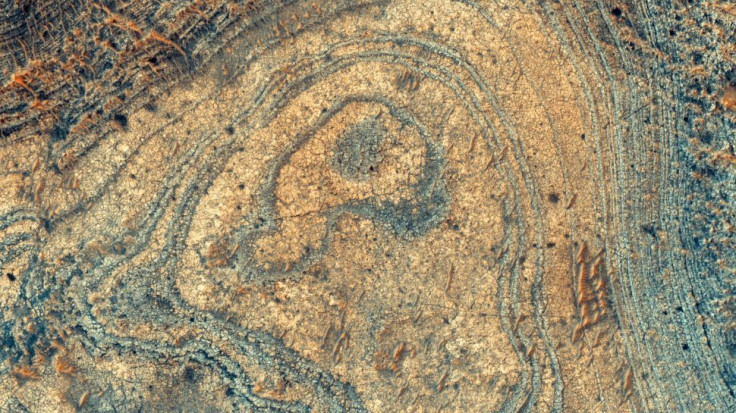NASA Mars Methane Mystery: It's A Rover Fluke, Russian Expert Says

The past two weeks were exciting times for NASA as its Curiosity rover was able to detect what’s considered to be the highest amount of methane gas ever detected on Mars. But just as soon as it spiked, the methane levels also died down to almost non-existent. So what exactly happened?
Although there are various theories circulating online, from the most exciting theory that the gas came from organic, alien microbes to something less stellar like ancient gas escaping due to geological movements, some scientists have offered a much more practical reason.
According to Alexander Rodin, an expert on planetary climates in the solar system and head of the infrared spectroscopy lab at the Moscow Institute of Physics and Technology (MIPT), one plausible explanation for the methane spike could be the NASA rover itself. Rodin, who worked on Mars Express and ExoMars, said that it’s easy to conclude that gas detected was a result of “equipment artifact.”
“The rover samples Martian air and analyzes it in a special compartment. I realize that the process has been thoroughly scrutinized for possible flaws, but one cannot quite eliminate the possibility that some plastic component in the rover could undergo degassing under the harsh conditions of Mars. This could theoretically release gasses that could undergo a reaction producing trace amounts of methane,” Rodin said in an interview when asked if there was something wrong with Curiosity’s measurements.
The scientist also commented that those measuring the methane gas back on Earth should be more objective of the results. “Methane on Mars was originally reported in 2003 by Russian astronomer Vladimir Krasnopolsky, at that time working in the United States, on the Canada-France-Hawaii Telescope. He reported an average methane concentration of about 8 ppb for the planet. However, by checking for possible errors, Krasnopolsky found his measurements in fact allowed for a 20 percent chance that there was no methane at all on Mars. In fact, he reported no methane detection in 2010,” Rodin said.
When it was pointed out to Rodin that it was the Mars Express which actually first detected methane gas on the Red Planet, he simply explained that he was actually skeptical of the results.
“I am fairly skeptical about that. The thing is that the Planetary Fourier Spectrometer carried by Mars Express has a much lower spectral resolution than the Atmospheric Chemistry Suite onboard ExoMars’ Trace Gas Orbiter. PFS is arguably not sensitive enough to make a definitive measurement, considering the tiny concentrations involved,” he explained.
The scientist further explained that the discovery seemed like such a big deal at this time because of “psychological” implications. Rodin explained that both researchers and the public are simply intrigued by the possibilities brought about by the methane gas spike since it would be hard to explain its source without considering biological, and in essence alien life, possibilities.
© Copyright IBTimes 2024. All rights reserved.





















